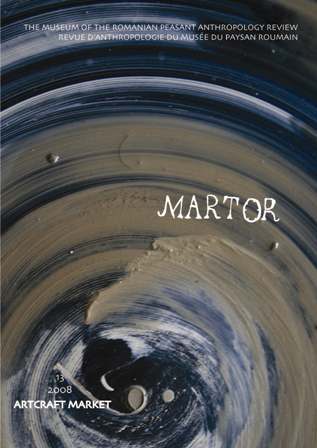The Romanian Ideology: A Critique of the Meaning of Tradition during the Interwar Period
The Romanian Ideology: A Critique of the Meaning of Tradition during the Interwar Period
Author(s): Mihai GheorghiuSubject(s): Anthropology
Published by: Muzeul Ţăranului Român, Editura Martor
Keywords: traditionalism; history; ideology; religion; peasant; archetype; semănătorism; poporanism; Orthodoxism; protochronism;
Summary/Abstract: Romanian pre-war and interwar traditionalism assumes the belief that the traditional village belongs to an archaic world. It is a world legitimated by faith, religion, therefore by sacred values, a world that is respectful of the original model, in the sense that it perpetuates this model, a world of rituals embedded in all gestures, a world where each act reveals itself as a ritual. Life does not mean survival, but organic living in the realm of mystery. The boycott of history has been completely assimilated by the ideological construction of an original, unique and fundamental anthropological model. The ideological model is founded on the rejection of reality, on the alleged penetration of the unique and real meaning of reality. Ideology transfers the ultimate conclusion of a militant and sometimes millenarian explanation to a kind of neutrally-considered history understood as a shapeless and degrading flow. History is excluded by falsification.
Journal: Martor. Revue d’Anthropologie du Musée du Paysan Roumain
- Issue Year: 2008
- Issue No: 13
- Page Range: 39-46
- Page Count: 7
- Language: English

